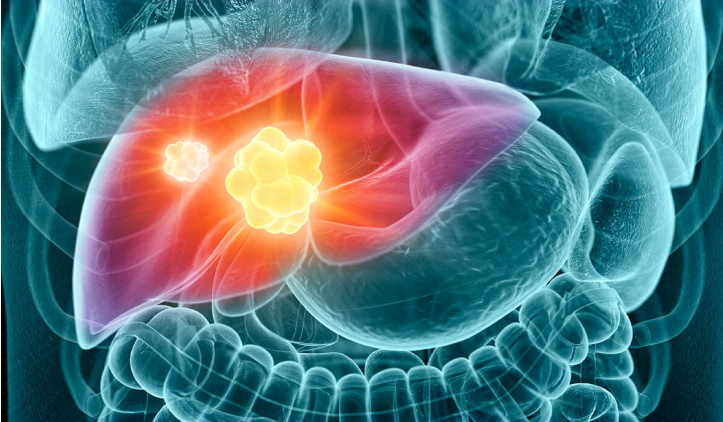Liver Cancer

What Is Liver Cancer
Liver cancer (hepatocellular carcinoma) is a cancer arising from the liver. It is also known as primary liver cancer or hepatoma. The majority of primary liver cancers (over 90 to 95%) arises from liver cells, which make up 80% of liver tissue, and is called hepatocellular cancer or carcinoma.
Metastatic liver disease (cancer) or secondary liver cancer, is cancer that has spread to the liver, having originated in other organs such as the colon, stomach, pancreas, breast, and lung. Thus, the term liver cancer actually can refer to either metastatic liver cancer or hepatocellular cancer.
Symptoms of Liver Cancer
Abdominal pain is the most common symptom of liver cancer and usually signifies a very large tumor or widespread involvement of the liver. Additionally, unexplained weight loss or unexplained fevers are warning signs of liver cancer in patients with cirrhosis. The sudden appearance of abdominal fluid and swelling and jaundice (yellow color of the skin), may suggest the possibility of liver cancer. On physical examination, an enlarged, sometimes tender, liver is the most common finding.
Diagnosis of Liver Cancer
When your doctor finds a reason to suspect cancer in the liver, you will be advised to undergo a series of diagnostic tests. Some of these tests are noninvasive and require a brief visit to a clinic or lab. Others are more involved and may require an overnight stay in a hospital.
Treatment Options
Surgery
Every patient with a liver tumor should be evaluated for a resection (surgical removal of a section of an organ). It is the only chance for cure. Removing the tumor will rid the body of the cancer and also prevent further spread to other regions. The goal of liver resection is to completely remove the tumor and the appropriate surrounding liver tissue without leaving any tumor behind.
Radiofrequency Ablation (RFA)
This utilises microwaves to generate thermal energy and heat within the target tissue, using needles placed into the lesion under image guidance. It is usually used for irresectable lesions and be applied percutaneously (through the skin), laparoscopically or during laparoscopy.
Transarterial Chemoembolisation
This involves infusion of emulsion of chemotherapy agent mixed with lipoidal into the feeding artery of the tumour, followed by embolisation. This is usually for large iresectable tumoours limited to the liver with no involvement of the portal vein.
Chemotheraphy
Chemotherapy uses drugs to treat the cancer. These drugs work by interfering with the growth of cancer cells and lends to cell death. Effectiveness of treatment is evaluated regularly with physical exams, blood tests and x-rays. A drug is considered effective if it causes the cancer cells to shrink, to stop growing, or to die.
Liver Transplantation
Liver transplantation has become an accepted treatment for patients with end-stage (advanced) liver disease of various types. Moreover, liver transplantation is the best option for patients with tumors that are less than 5cm in size who also have signs of liver failure.
Request For An Appointment
Tay Khoon Hean Surgery is located in the Gleneagles Medical Centre. The clinic and its friendly, caring and dedicated staff offer a comprehensive service in all aspects of General Surgery. The clinic provides a comfortable and warm waiting area with a fully equipped treatment facility for minor surgical procedures.

Clinic Address
Gleneagles Medical Centre6 Napier Road, #08-02Singapore 258499
Contact Information
Tel : +65 6471 1221
Email : tkhsurgery@yahoo.com.sg
24hr Emergency Hotline : +65 6535 8833
Consultation Hours
Mon - Fri : 8:30am - 5:00pm
Sat : 8:30am - 1:00pm
Sun & PH : Closed

